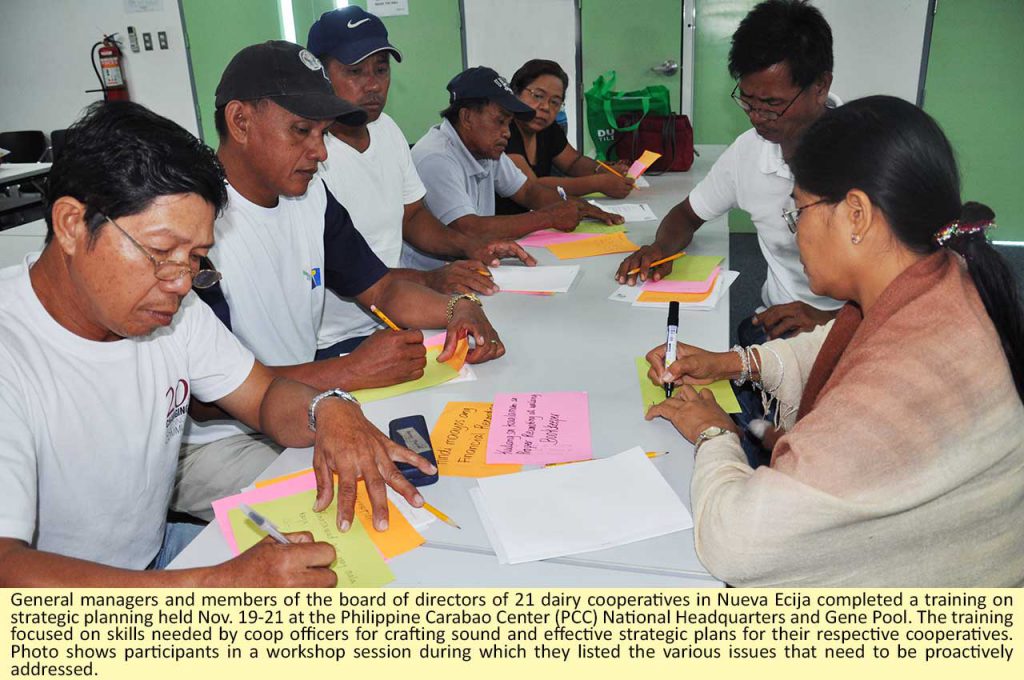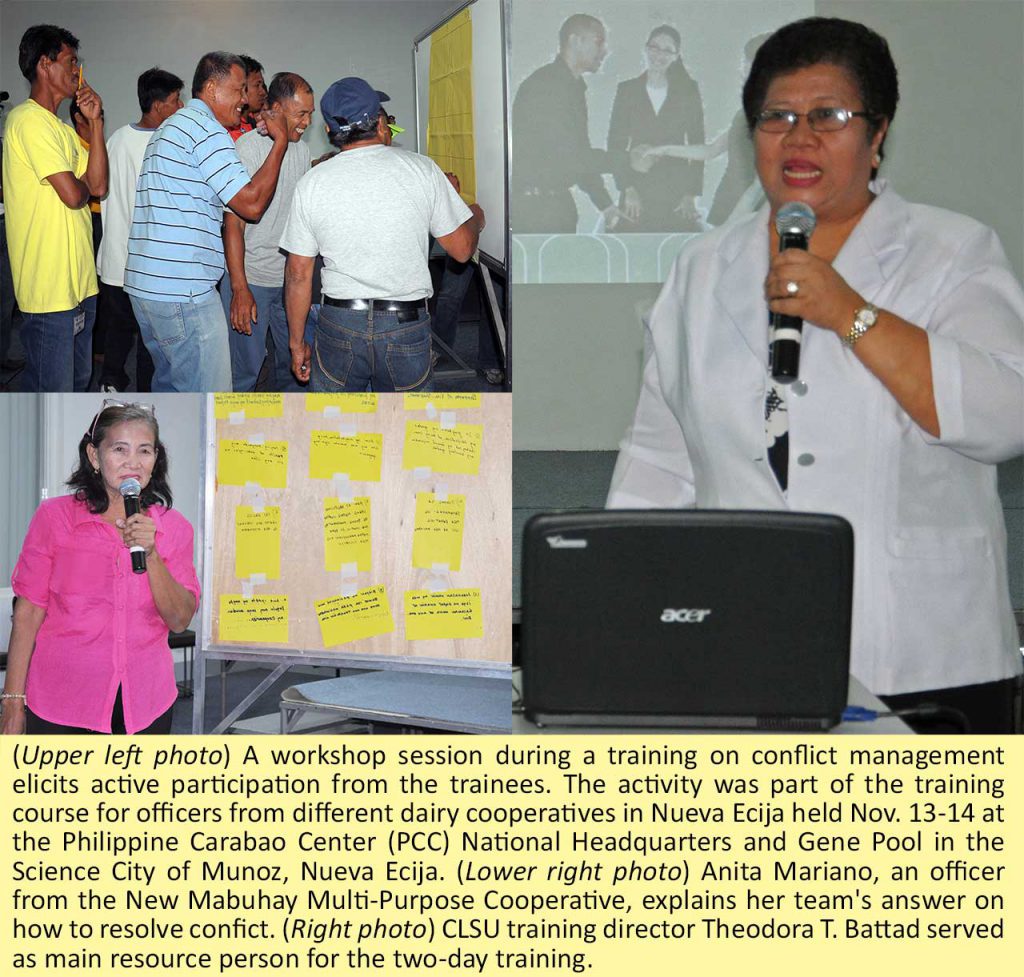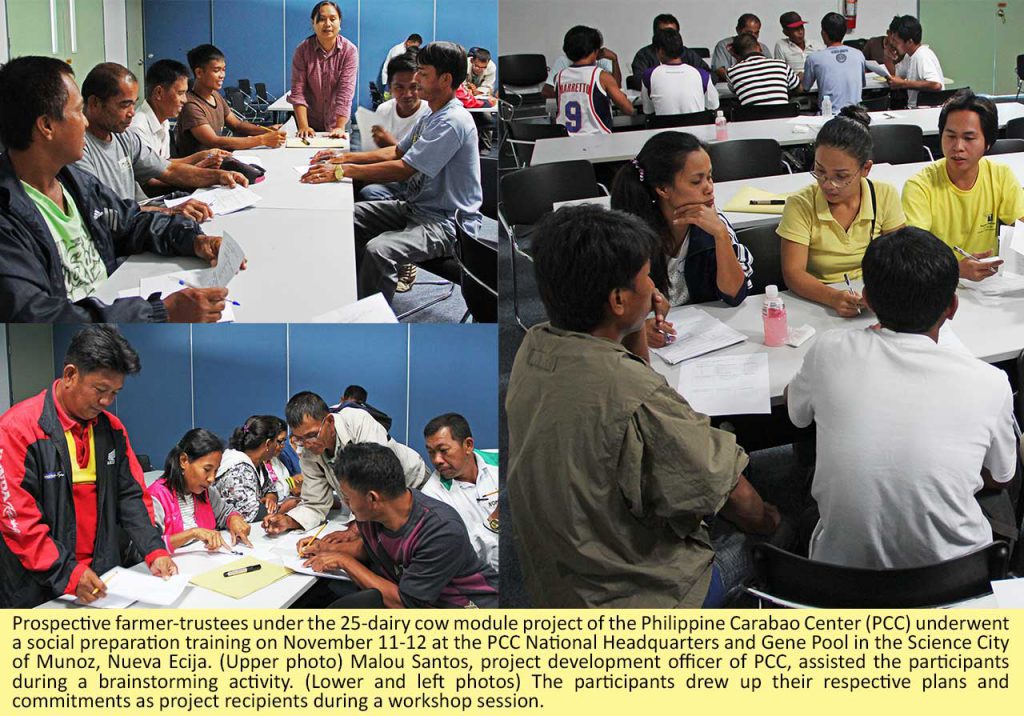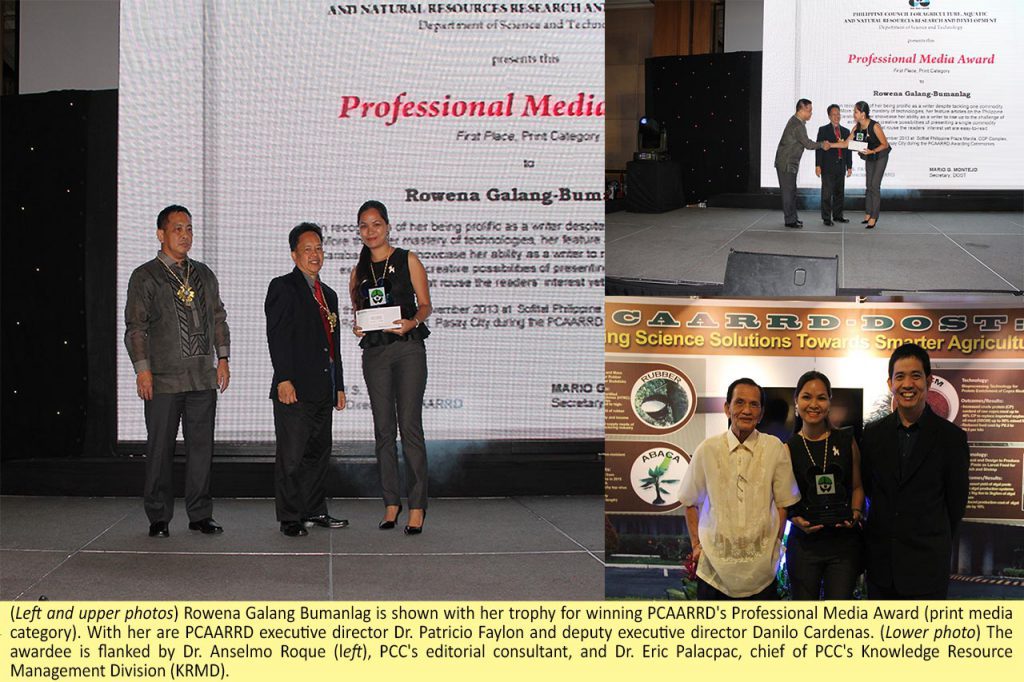The board of directors (BOD) and the general managers are the driving force behind every cooperative. They establish the strategic direction of the coop and craft plans that will take them toward that direction. Thus, it is important that they are knowledgeable and properly skilled in formulating effective and efficient strategic plans.
Within this framework, 51 members of BOD and general managers of 21 dairy cooperatives in Nueva Ecija completed a strategic planning workshop held November 19-21 at the Philippine Carabao Center (PCC) National Headquarters and Gene Pool in the Science City of Muñoz, Nueva Ecija.
The training course is one of 14 modules under the Standard Training Curricula developed by the Cooperative Development Authority (CDA) for cooperative officers who need to be equipped with competencies necessary in discharging their respective responsibilities.
Trainers from the CDA-accredited training center at the Central Luzon State University (CLSU) conducted the three-day course.
Engr. Adorable Pineda, head of the presidential staff at CLSU, urged the participants to be systems thinkers who look at their respective cooperative as a system wherein each member is an interrelated component.
That system works within the context of larger systems, and better performance is achieved with the strengthening and balancing of the processes within the system, he pointed out.
In this context, participants reviewed and analyzed their respective cooperatives to determine if these are responsive to their mission, vision and goals. They evaluated the different indicators on the organizational, social and economic aspects of their coops’ operation. They also looked at current trends and issues relevant to their cooperatives in the national and global context.
From this take-off point, Dr. Pastora S. Coloma, CLSU director for extension, guided the participants through the different processes involved in crafting a strategic plan for their respective cooperatives.
“A strategic plan is an organization’s game plan or business plan to reach its goals,” Dr. Coloma explained. “It usually covers a period of 3-5 years and takes careful planning. It should also be duly approved by the members of the cooperative,” she added.
According to Coloma, strategic planning involves identifying the issues that need to be addressed with respect to the vision, mission and goals set by the coop.
She added that analyzing and evaluating internal and external factors affecting the coops, classifying them as strengths, weaknesses, opportunities, or threats, will help determine the proper course of action in crafting a sound strategy for each coop.
As a final output for the training, the participants were then grouped according to their respective cooperatives and formulated sample of strategic plans, which they presented during the last day of the training.
“The cooperatives are encouraged to continuously develop their coop by formulating relevant strategic plans. We are requesting them to develop their strategic plans for the next five years and to furnish us a copy of such plans,” Wilma Del Rosario, Agriculturist II at PCC who currently works closely with the cooperatives, said.




